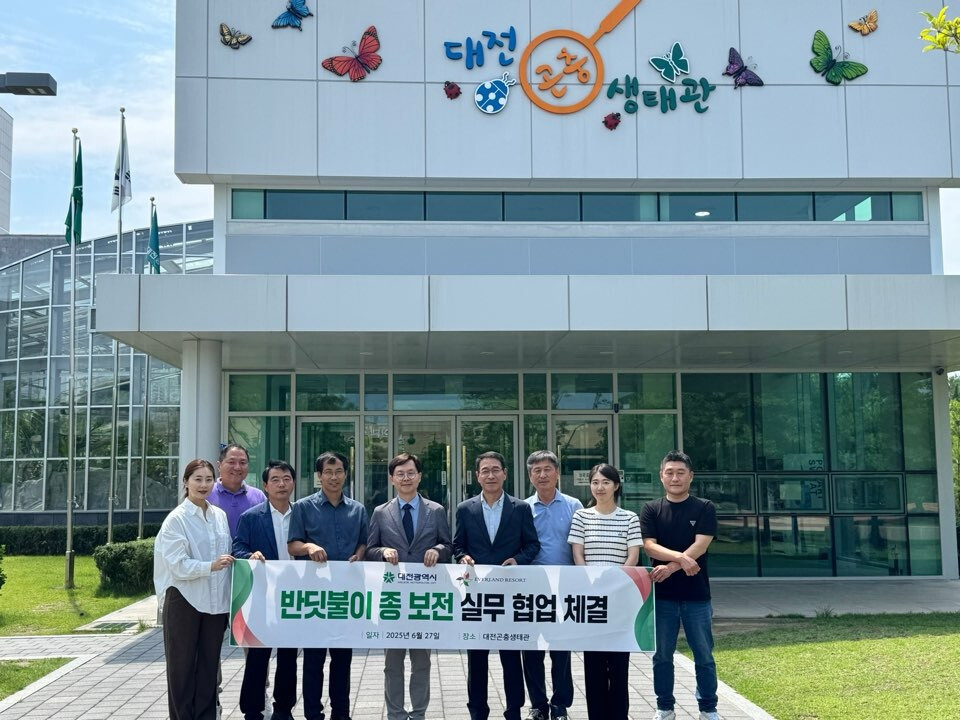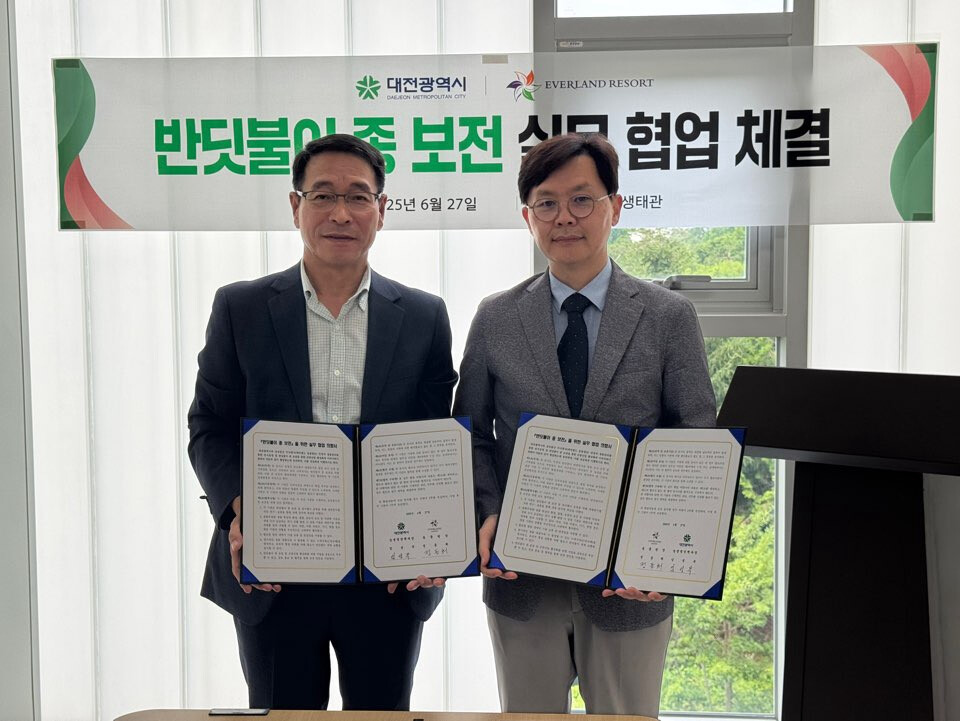Collaboration Agreement Signed on the 27th… Mutual Support for Individuals in Crisis and Technology Exchange

Daejeon City has joined hands with Everland Zoo, a private professional institution, to conserve firefly species that are gradually disappearing from the natural ecosystem. The Daejeon Insect Ecology Center and Everland Zoo signed a "Collaboration Agreement for Firefly Species Conservation and Exhibition Revitalization" on the 27th, officially commencing their mutual cooperation.
This collaboration is a public-private partnership model aimed at continuing exhibition operations through the stable breeding of fireflies, while also promoting species conservation in response to the rapidly decreasing wild populations due to climate change and habitat destruction. Especially for the Aquatica ficta species, natural collection and supply channels are extremely limited, making artificial breeding technology essential for securing large quantities for exhibition purposes.
The two institutions have agreed upon: ▲mutual individual support in case of crisis ▲exchange of individuals to prevent inbreeding ▲sharing of technology and breeding know-how ▲and developing win-win strategies for the revitalization of the insect industry. They will also serve as a mutual safety net to prepare for risks that may arise during mass breeding.
The Daejeon Insect Ecology Center has been conducting research on indoor mass breeding of Aquatica ficta since 2017, and in 2023, they published a research paper on their spawning characteristics. Last year, they utilized approximately 40,000 self-bred fireflies for exhibitions, receiving nationwide acclaim. Recently, they have also distinguished themselves in content utilization, such as sponsoring fireflies for filming in season 2 of the American drama Pachinko.
Lim Seong-bok, head of Daejeon City's Agricultural Life Sciences Policy Division, stated, "We have begun this collaboration with Everland to pass on the Aquatica ficta, which are gradually disappearing from nature, to future generations. We will continue to strive for this collaboration to become a new driving force for the insect industry and a model example of biodiversity conservation."

[Copyright (c) Global Economic Times. All Rights Reserved.]




























